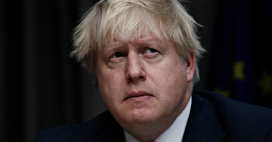
On 7 May 2025, the European Commission decided to refer Bulgaria to the Court of Justice of the European Union for failing to correctly transpose into its national legislation the Directive on the right of access to a lawyer and to communicate upon arrest (Directive 2013/48/EU).
Access to a lawyer is a fundamental component of the right to a fair trial. Fair Trials campaigns for arrested people to have access to legal counsel as soon as possible after they are arrested and before they are questioned by the police. When someone is arrested, they are extremely vulnerable. Lawyers can protect people from coercive police tactics, enable them to assert their right to remain silent and help to prevent miscarriages of justice. Decisions made at these early stages have a big impact on the outcome of a trial, so the early involvement of a lawyer is crucial.
With the police and prosecution having the entire state machinery behind them, it is crucial that a defendant is provided with legal assistance from the earliest possible moment in the proceedings to be able to make effective use of their defence rights.
Asya Mandzhukova, LEAP Advisory Board Member and Bulgarian defence lawyer, spoke with us about this long overdue but welcome development:
“It was high time that the European Commission took stronger measures against Bulgaria, which failed to transpose the Directive on the right of access to a lawyer correctly for nearly ten years, despite a total of four letters with specific remarks sent to it within the framework of the Infringment procedure and thereafter. The main problem, which affects not only this directive, but also almost all other procedural rights directives, is the lack of the procedural figure of a suspect in the Bulgarian criminal procedure. Thus, the right to access to a lawyer, as provided for in national law, does not extend to suspects.
The failure to transpose correctly the measures on the effective participation of a lawyer during an interrogation and the rules concerning derogations from the right to a lawyer for the interest of an investigation also leads to problems with the exercising of this right on a practical level.
For example, access to a lawyer in the early hours of a person’s detention in police stations is often obstructed for reasons that stem from deliberate delay and failure of the police authorities to provide assistance to the lawyers to visit their clients. In these first minutes and hours of detention, it is largely common that procedural actions such as personal searches, which include explanations of the person about the items found in him, or protocols for voluntary delivery, again including personal explanations of the person, are carried out without a lawyer. In these early minutes and hours of detention, the detainees often sign a declaration waiving their right to a lawyer, under influence by the police officers that they do not need one or that it will only aggravate their situation. Proving that the refusal of a lawyer was under pressure is almost impossible.
Furthermore, police stations rarely provide separate premises for meetings between lawyers and their clients, thus breaching confidentiality under art. 4 of the Directive. In prisons lawyers usually communicate with their client by phone with poor hearing, through a glass partition, together with other lawyers and detainees.
Unfortunately, practice shows that lawsuits and fines imposed do not have a particularly disciplining effect on Bulgaria, and especially the lengthy infringement proceedings blur the political responsibility for the legislative activity that did not take place, which necessitates the search for more effective measures for the timely implementation of community law in national legislation.”
Fair Trials remains abreast of these developments and encourages the Commission to closely monitor the implementation of all procedural rights directives, intervening where necessary through a transparent complaints mechanism to protect the rights of accused persons and defendants, and to strengthen mutual trust.
You can find Fair Trials practical advice on how to use the Directive on Access to a Lawyer in criminal proceedings here.


